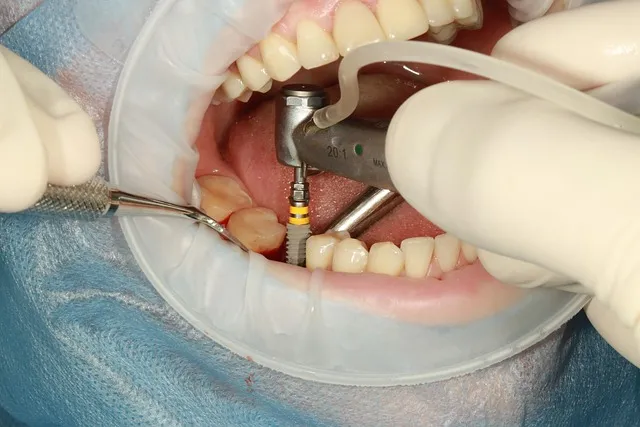If you're like most people, you probably haven't given your wisdom teeth much thought. But did you know that they're actually the third set of molars that typically develop in the back of the jaw? Wisdom teeth usually start to come in between the ages of 17 and 21, and they can cause all sorts of problems if they're not monitored closely. In fact, according to some estimates, as many as 60% of people opt to have their wisdom teeth extracted.
Common Wisdom Tooth Growth Patterns
There are four different types of wisdom tooth growth patterns, and each one can present its own challenges. The most common type is when the wisdom tooth erupts through the gum line but doesn't have enough room to fully emerge. This can cause pain, swelling, and infection. The second most common type is when the wisdom tooth partially emerges through the gum line but then becomes impacted, or stuck. This can also cause pain, swelling, and infection. The third type is when the wisdom tooth doesn't erupt through the gum line at all and becomes completely buried. This is called an impacted wisdom tooth, and it's the most difficult to deal with because it's difficult to clean properly. Impacted wisdom teeth can also lead to pain, swelling, and infection. The fourth and final type is when the wisdom tooth erupts completely through the gum line but then starts to crowd or damage other teeth. This can ultimately lead to crooked teeth or even jaw problems down the road.
Wisdom Tooth Removal
If you have an impacted or crowded wisdom tooth, it's important to get it removed as soon as possible. An oral surgeon Downers Grove can help if your case requires a more specialized approach. Removal isn't always necessary, but in order to avoid long-term problems, it's best to have the tooth checked out by a dentist first. They'll be able to tell you whether or not removal is necessary, and if it is, they'll be able to discuss the best options for removal. Wisdom teeth removals are typically done in a dental office or hospital setting under local anesthesia with sedation. The procedure usually takes about an hour, and recovery time varies from person to person — but you can generally expect to be back to normal activities within a week. After your wisdom teeth are removed, you'll need to take care of the area by brushing and flossing regularly and making sure to keep it clean. You should also avoid smoking or eating crunchy foods for at least a few days. And if you're prescribed antibiotics, make sure to take them as directed. Overall, wisdom teeth removal can be a relatively minor procedure — but it's important to keep an eye on your wisdom teeth and make sure they're developing properly. If you have any concerns or questions about yours, talk to your dentist today for more information. They'll be able to assess the situation and determine if removal is necessary in your case.
Does Everyone Have To Get Their Wisdom Teeth Removed Eventually?
It's a commonly held belief that everyone will eventually need to get their wisdom teeth removed. However, this isn't necessarily true! While it's common for wisdom teeth to cause problems - such as crowding, pain, or infection - not everyone will experience these issues. In fact, some people never even develop wisdom teeth at all. So, while it's true that many people do need to have their wisdom teeth removed, it's not something that everyone has to go through. If you're concerned about your wisdom teeth, the best thing to do is talk to your dentist. They'll be able to assess the situation and determine whether or not removal is necessary in your case.
Also Read The Unexpected Benefits Of Keeping Wisdom Teeth
The Bottom Line
When it comes to wisdom teeth, it's important to keep an eye on them and make sure they're developing properly. If your dentist believes that removal is necessary, it's important to get it done right away in order to avoid any potential long-term problems. And if you don't have wisdom teeth or don't have any issues with them, then there's no need to worry about getting them removed. Talk to your dentist for more information and advice. While some people never experience any problems with their wisdom teeth, others find them to be a real nuisance. If your wisdom teeth are causing you pain or crowding your other teeth, you may want to consider having them extracted. Extraction is a relatively simple procedure that can be done by your dentist or oral surgeon, and it's usually covered by insurance. Having your wisdom teeth removed may not be something you're looking forward to, but it could save you a lot of pain and inconvenience down the road.

Reviewed by







